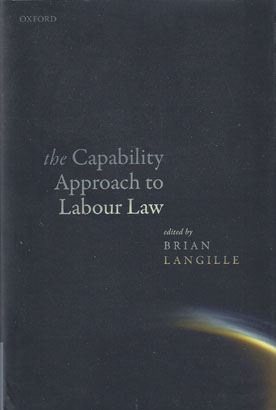
Forty years ago Amartya Sen delivered his Tanner Lecture, 'Equality of What?', in which he introduced to the world a novel approach to the idea of equality by way of the notion of 'basic capability' as 'a morally relevant dimension'.
We can now see with hindsight that Sen's argument - that we should focus upon equality of basic capabilities ('a person being able to do certain basic things') - launched what has become an academic armada now proceeding under the flag of 'the capability approach'. While that flag has ventured far and wide and engaged many area of inquiry, this volume of essays is the first to explore how the capability approach (the CA) might shed light upon labour law.
Three dimensions of the CA's potential for illuminating labour law are examined. Part I enquires into the nature of the basic relationship between CA and labour law - do they share common ground or disagree about what is important? Can the CA provide a normative 'foundation' for labour law?
Part II goes further by examining the relationship of the CA and other well-established perspectives on labour law, including economics, history, critical theory, restorative justice, and human rights. Part III examines the possible relevance of the CA to a range of specific labour law issues, such as freedom of association, age discrimination in the workplace, trade, employment policy, and sweatshop goods.